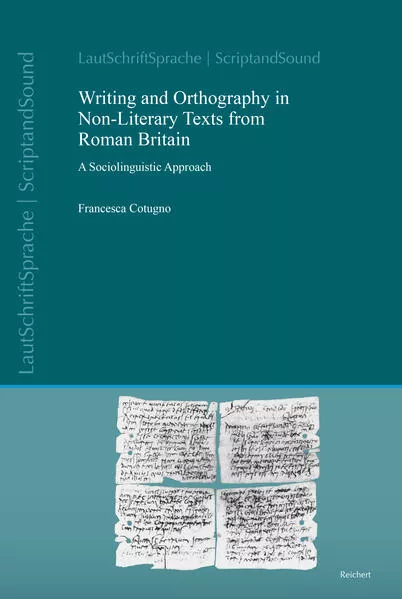
- Publikationen ca: 1
- Fragen & Antworten
Francesca Cotugno
Francesca Cotugno, Ph.D. in Philology, Literature and Linguistics (2018, University of Pisa—University of Gent), is Post-doctoral Research Fellow at University of Verona within the project PRIN 2017 “Parts of speech meet rhetorics: Searching for syntax in the continuity between the Middle Ages and the Modern Age”, whose Principal Investigator is Prof. Paola Cotticelli. Francesca Cotugno’s research interests focus on language contact and change, with a special attention to the Latinization of Britain and Celto-Germanic areas of the continent. She is currently working on Grammaticography and History of Linguistics, Historical Phonology and Morphology within the broader scenario of ancient Indo-European languages, together with Graphematics and the interactions between Linguistics and Palaeography. At the present time she teaches Phonetics and Phonology at University of Verona and Glottodidattica and Didattica della lingua italiana at Università telematica Guglielmo Marconi (Roma). Previously, she has been Post-doctoral Research Fellow at University of Nottingham and University of Oxford (being based at the Centre for the Studies of Ancient Documents) for the ERC project LatinNow (from September 2017 to January 2020), with Dr. Alex Mullen as Principal Investigator. She also worked as Lecturer for the Epigraphy Graduate Classes (for the temporary period of 01 February 2020 to 31 March 2020) at the University of Oxford. Previously, starting from 2014, she was part of the Research Unit at the University of Pisa (Principal Investigator Prof. Giovanna Marotta) that worked on the Sociolinguistic Database CLaSSES within the research project Linguistic representations of identity. Sociolinguistic models and historical linguistics (PRIN2010, prot. 2010HXPFF2_001, National Coordinator Prof. Piera Molinelli) with specific reference to the part concerning Roman Britain.
Writing and Orthography in Non-Literary Texts from Roman Britain
The main aim of this book is an analysis of the orthographic variation observed in non-literary documents written on tablets in Roman Britain (i.e. Londinium-Bloomberg stylus tablets, the Carlisle and Vindolanda ink tablets, and curse tablets) taking into account any possible glimpse of language contact between the mother-tongue of the writers, conveniently hidden by the prestige of the Latin language and culture.
